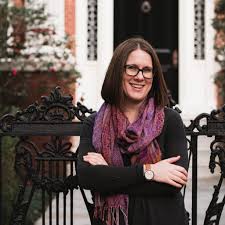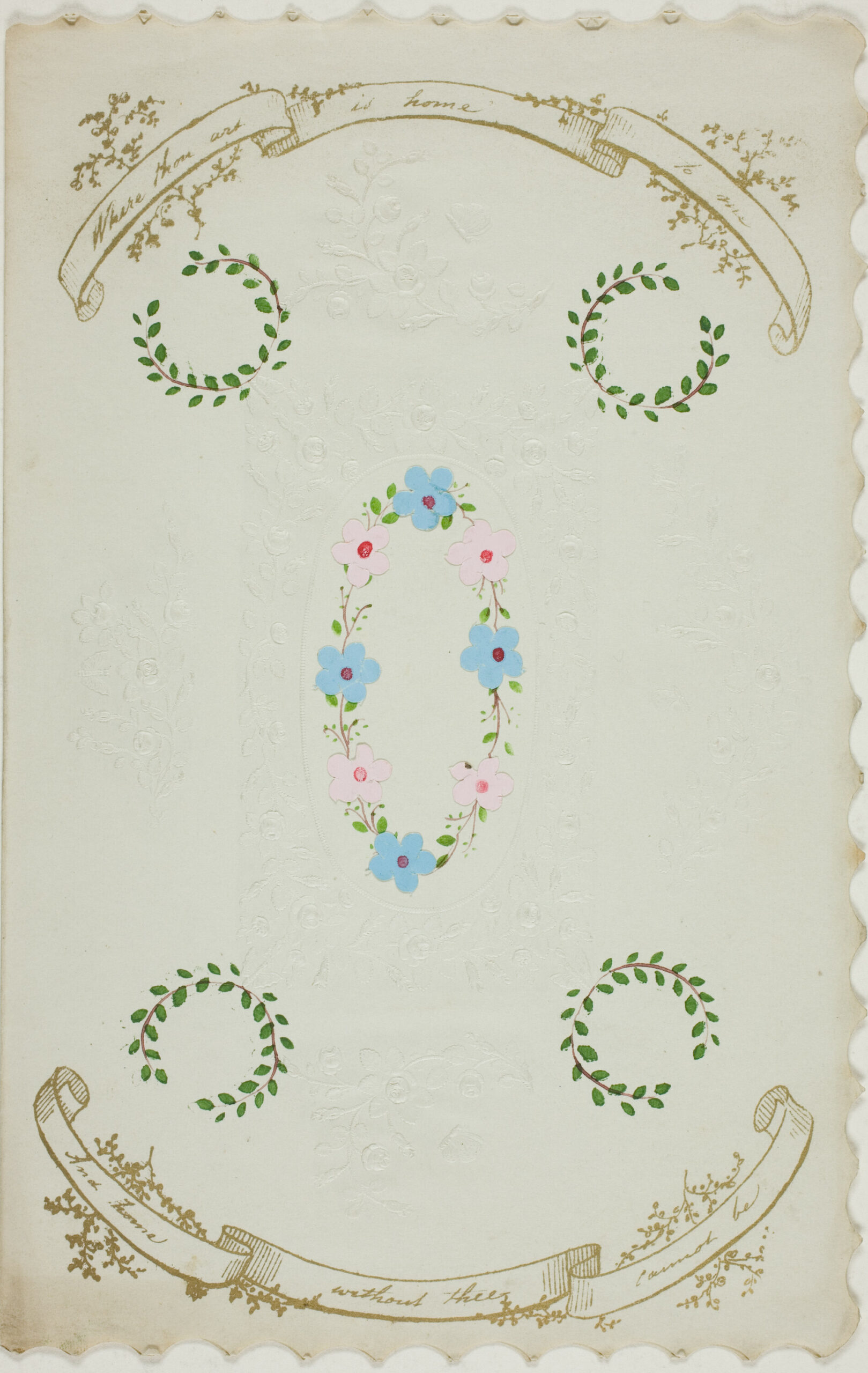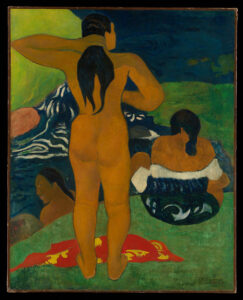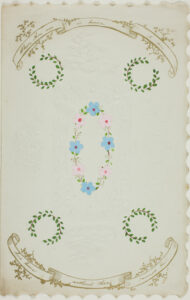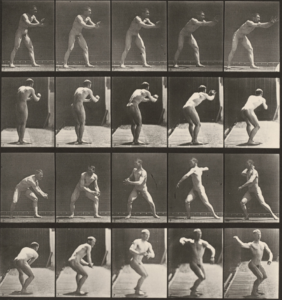This Closet Smells Like Chicken
by Dana Staves
Sin leads to punishment; of that much, I could be absolutely sure. Girls in my church were taught about the sinful women of the Bible, women who were examples of the ruin that comes from straying away from God. We learned about Eve, who was punished with menstruation and child-bearing capabilities (we get to share in her punishment, lest we forget); we learned about Bathsheba, who sinned with David and got pregnant as a result; we learned about Jezebel, who used her sexuality to influence the men in her life to worship idols, and who was thrown from a palace window and eaten by dogs; we learned about Sapphira, who lied for her husband and was struck down dead on the spot. Wham. Just like that. Dead.
The story of Sapphira made a particular impression on me because, growing up, I had a problem with lying. I wouldn’t say I particularly liked lying; it just made things easier. When my parents were divorcing, each told me not to tell the other one information. “Don’t tell Dad this…” or “Don’t tell your Mom that…” So when either parent asked outright about the very thing I had been told not to tell the other parent, I lied. It made things easier, for a time, until either parent actually talked to the other one, and then the truth came out. “What a tangled web we weave,” my mother would sing-song at me every time I was caught in a lie.
Some of the lies were innocent. A girl in my second grade class had just gotten new glasses with purple frames, and I thought they were so cute. I coveted them the way I covet boots today. Sadly, I had perfect vision. My mom owned some costume glasses with thick black frames to them. I stole them from her dresser, wore them to school, and told my teacher the prescription was new. I told everyone I needed them to be able to see. No one questioned me, and I almost got away with it until I stepped off the school bus and found myself face to face with my dad. I was busted, and I never wore them to school again.
I grew up in a Southern Baptist youth group at one of the biggest churches south of Atlanta. Only in recent years has it technically lost its mega-church status (only because Sunday School numbers are down). Growing up in a youth group that size, there was always something going on, and church became both a social outlet and a religious one. On trips to church camp or potlucks, we sang sweet songs like “Amazing Grace” and “Jesus Loves Me” and other praise songs, but we also had a song about lying, sung to the tune of “Frère Jacques”:
Revelation, Revelation
21:8, 21:8
Liars go to Hell, Liars to go Hell,
Burn, burn, burn; Burn, burn, burn.
That was me. Going to Hell. Burn, burn, burn. No matter how hard I tried, I just couldn’t not lie. During my senior year in high school, I worked my way through a devotional book called A Call to Die, in which I really worked on not lying. I confessed my lies, having one uncomfortable conversation after another with my mom, my dad, and even a few friends I had lied to. I fasted from junk food, and I fasted from the impulse to lie, and at the end of forty days, I had memorized the many Bible verses that called me to “die” in the metaphorical sense, verses that were thrown around with such nonchalance that they lost their intensity. I was “dying,” I had been called to “die,” I was “dead” through Christ so that I could live without sin. And after all this metaphorical death, I was to be raised anew, no longer a liar. Despite the fact that I knew, knew, that “all have sinned and fall short of the glory of God,” (Romans 3:23), I thought it worked and I was a liar no more. (It didn’t. I was still a liar. Seriously, all fall short. But I’ll get to that in a minute.)
That childhood spent in a Southern Baptist youth group, one so focused on evangelism and ridding its kids of sin and imperfection so that they could be more perfect witnesses – that has all affected the way I view sin as an adult. It hit me, as I wrote this essay, that I would be confessing sins all over again. Or really, one sin in particular. I’ve confessed it to a few close friends, people I trust not to judge me or flog me publicly on Facebook. More often than not, those people I’ve confessed to struggle with the same sin, which is gratifying. I think it’s why robbers like having a partner in crime: we like being bad, but we like it better if there’s someone to shoot the shit with while we do it.
I commit my sin at work, on the college campus where I teach. I sin at home because the object of my sin is so easily obtained. I sin quietly and with complicated enjoyment.
Here’s the truth: I eat Chick-fil-A.
This isn’t a sin based on eating too much fried food or unethically produced chicken or drinking too much sinfully sweet tea. I know a great many people back home in Georgia for whom eating Chick-fil-A is a sign of solidarity against all those liberals and hippies and homos who want to flog Dan Cathy for his opinions.
But that’s the problem. I’m one of those homos. I’m one of those liberals. I shower too much to be a hippie, but the point remains: I’m gay, and I eat Chick-fil-A.
Last year, when news broke that Chick-fil-A had been donating large sums of money to anti-gay marriage organizations and ministries, many of my friends declared openly on Facebook that they, for one, would no longer support a company that actively hated gay people, that fought against granting them the right to marry, that used God as a way to rob people of their civil rights. People responded with outrage and shock, which surprised me. Was anyone really all that astonished that the company supported the highly conservative, highly religious standard of thinking and spending that acted against gay marriage? This came as no surprise, and as I munched on waffle fries, I remained baffled.
And as I watched this play out on my Facebook feed, I also felt conflicted. I’m gay. Of course I want to marry my girlfriend one day. Of course I don’t want to put my money in the wallets of people who oppose the idea of two people who love one another getting married. Of course using God as a way to rob people of their civil rights is wrong.
But I had a few nagging thoughts that made the issue slightly more complicated for me. First, they’re a privately owned company that has, from day one, marketed themselves as a company that carries out Christian principles. That’s not a loosely defined Christianity. That’s old guard, Deep South, conservative Christianity. It’s don’t drink alcohol, no dancing in church, ladies wear dresses, and close up shop on Sunday Christianity.
Second, I really love Chick-fil-A. I know that, for some people, that may indicate some deep-seated self-loathing, some shame for being gay that comes from my uber-Christian upbringing. But I do. Chick-fil-A is home to me. It’s church camp, and surprise Ice Dream cones in the car when my mom and I ran errands together, and the first sweet tea I actually liked (despite growing up in Georgia). It’s what I ate three to five times a week during college, justifying that much fried chicken by ordering side salads along with waffle fries. This chicken and I go way back.
And the third, the biggest, the most complicated aspect of my inner turmoil over this sin of mine is the one I’ve stayed the most silent about: I know the Cathy family.
Remember that big Southern Baptist church I grew up in? The Cathy family, or part of it, grew up in that church as well. Local critics of the church, people who disliked the mega-church format, or the structure of the youth group, or the fact that some of our elderly members were presumptuous enough to park in the Methodist church’s parking lot next door (which, I will concede, is really not cool) – those critics had nicknames for our church. Six Flags Over Jesus was one. But more popular was Church of Chick-fil-A.
Truett Cathy, the founder of Chick-fil-A, was my little brother’s Sunday School teacher in eighth grade. I grew up with some of Mr. Cathy’s grandkids, going through both youth group and high school with three of them. I knew them to be kind, sweet people.
There’s a spectrum of hard-core teen Christian behavior, or at least there was when I was in high school. On the one end, there are sweet people of quiet but enduring faith. They don’t set out to debate or convert but rather live out their faith in a daily way, forgiving themselves their imperfections as I imagine God does, and forgiving others theirs.
On the other end, there are the Jesus Freaks (I mean that in an endearing way, like the dc Talk song suggests). Those are evangelical teenagers who have fully bought into the idea that they are warriors on a mission from God to convert their high schools, their neighborhoods, and any food service or retail professionals they may meet. They carry out a tradition of evangelism modeled from the New Testament apostles and subsequent teachers and prophets; basically, those kids would witness to a lamp post if they thought it had a soul to save. They relish debates, and they know every Bible verse to tell you why you should avoid any and all sin.
I’m ashamed now to say that I was on the latter end of the spectrum. Though I was slightly introverted, I knew those Bible verses by heart. I led prayer rallies around the flag pole. I was the first to correct people on their behavior in the name of my religion. I was the first to walk away from them when they didn’t see things my way.
But the Cathy kids were different. They were nice, well-adjusted, great kids in that all-around, all-American sort of way. They were religious – everyone knew it – but they didn’t have to tell you or argue about it. They just lived it. I never heard a word of judgment about anyone from a single one of them.
And what’s more, the Cathy family has shown great kindness to my own family. When I was in high school, my brother, just one year younger than I, died in a car accident we were in coming home from the mall one day. He hung on for a week in an induced coma until the swelling in his brain was too great and he was declared officially brain dead. Our church, big as it was, sprang into action, arranging for meals, coming to visit us, taking care of whatever we needed. Most of my brother’s friends were away at church camp in Florida, but they got those boys back early so they could be at the funeral.
The funeral was held in Georgia, but my brother was to be buried in Orlando, Florida, my parents’ hometown, where my mother’s father was already buried. She bought the plot next to his for my brother. As arrangements were made to get the family down to Florida for the burial, Truett Cathy called. He knew we would be travelling, and he wanted to provide us with food while we were in Florida. He had contacted the Chick-fil-A location near our hotel and told them to prepare a tray of sandwiches, brownies, and several gallons of sweet tea for us to pick up, free of charge, so that we wouldn’t have to worry about finding food. He remembered Danny kindly to my mother, and he did what he could to help. I think people tend to show love in times of loss or tragedy by filing each other’s bellies, regardless of what faith tradition or what part of the world we’re in. It is one burden that can be lifted amid so many that no one could possibly lift for us. And Mr. Cathy lifted that burden for my family.
Last year, when everyone found out about the Chick-fil-A corporation’s spending activities, particularly with regard to their views on gay marriage, I wasn’t surprised in the least. I read the reports, but I already knew the accusations against them were true. I grew up in a Focus on the Family, “biblical definition of marriage” kind of church, just the same as the Cathy family did. I knew the Bible verses, the rules, the catch phrases, like “traditional family,” and buzz words, like “abomination.” I grew up with them, I ingested them, I took them deep into the closet with me and used them as reasons to stay in, to protect myself from what would certainly be disownment from my family, an irreparable fall from grace, from the religion I hadn’t quite given up on, though I had walked away from that big Southern Baptist church years prior.
Even after I came out of the gay closet, told my family (and wasn’t disowned), and began investigating ways that I could consider my place in religion again, as a gay woman, I had (and still have) a healthy fear, or perhaps apprehension, about the Southern Baptist church and any institution that so vehemently rails against one particular sub-group of people.
And yet: the Cathy family as a unit was safe in my book. I didn’t associate them with the Religion I was scared of.
In writing, we use the universal paradox to make big, universal, abstract truths become real. By making them individual, tangible, relative, we come to understand those truths better. Back in those early days of the Chick-fil-A “scandal,” I wanted to say something to defend the Cathy family’s name. I wanted to say that I remember, one morning in my freshman home economics class, I sewed a button back onto Truett Cathy’s grandson’s shirt. He was a senior, and all of my friends had crushes on him at the time, so when I said I sewed a button onto his shirt, I might as well have touched royalty. For a day (or maybe even just for one class period), I was a little cooler for my brush with high school girlhood fame.
I remember a tearful conversation I had with Mr. Cathy’s granddaughter, sitting on benches on our college campus one day. I was months away from graduating, and she was a year behind me, and we felt uncertain about the future – had we majored in the right things? What would we do after graduation? What was expected of us? What did we want? Where did we go from there?
Most of all, I remember a hotel mini-fridge in Florida, chock-full of Chick-fil-A sandwiches after my brother’s funeral. I remember eating brownie after brownie, a relief after a period of not being able to stomach food. I remember it as the first time I didn’t bother to pick the cold walnuts out of the frosting atop the brownies, as I always had before.
The universal paradox keeps me from judging that family, and to a certain degree, their company. I know them. Or I knew them. I don’t know what they would think of me today – a gay woman, out, in a loving relationship, writing, teaching, and so happy. Likely, they would be kind and polite and brush over the whole gay thing. That’s what my experience tells me.
But my experience also tells me not to let anyone see me eating Chick-fil-A or drinking out of a Chick-fil-A cup on my college campus. The same way that I was in a gay closet several years ago, I am now in a Chick-fil-A closet, and this closet smells like chicken.
The academics at my particular university are a smart, vivacious bunch: they are informed, they are tuned in to social justice, and they have got opinions. Lots of them. Strong ones. These opinions show up daily on my Facebook news feed, and they are telling me in language that ranges from passive aggressive to downright hostile: Chick-fil-A is bad. And if you eat Chick-fil-A, you are bad, bad, bad, too.
They have good reason for this. After about a year of dodging questions and issuing statements like, “We’re not anti-anybody,” Dan Cathy, the President of Chick-fil-A, Truett Cathy’s son, answered questions about his (and his company’s) position a little more candidly in an interview with Baptist Press: “We are very much supportive of the family — the biblical definition of the family unit. We are a family-owned business, a family-led business, and we are married to our first wives. We give God thanks for that.”
Later, Mr. Cathy elaborated further on his beliefs in a radio segment on “The Ken Coleman Show”: “I think we are inviting God’s judgment on our nation when we shake our fist at Him and say ‘we know better than you as to what constitutes a marriage’ and I pray God’s mercy on our generation that has such a prideful, arrogant attitude to think that we have the audacity to define what marriage is about.”
During the course of my writing this essay, further developments have been made in this particular chapter of the Chick-fil-A scandal. Chick-fil-A corporate spokesman Don Perry issued a statement on behalf of the corporation:
“The Chick-Fil-A culture and service tradition in our restaurants is to treat every person with honor, dignity and respect – regardless of their belief, race, creed, sexual orientation or gender. We will continue this tradition in the over 1,600 Restaurants run by independent owner/operators. Going forward, our intent is to leave the policy debate over same-sex marriage to the government and political arena.”
Meanwhile, Ed Helms, actor from The Office, has officially begun boycotting Chick-fil-A. Boston mayor, Thomas Menino, has said he will block any Chick-fil-A’s from opening in Boston because he doesn’t want any business in the city that “discriminates against a population.” And now, the Jim Henson Company has severed ties with Chick-fil-A, as Lisa Henson, the CEO, is a strong advocate for gay marriage. These developments are happening faster than I can write this essay.
I know this much: my sin is stronger for Dan Cathy’s confession. It’s stronger for the media backlash, the polarization and hot debates on Facebook. And as Martin Luther said, “Be a sinner and sin strongly, but more strongly have faith and rejoice in Christ.”
There is redemption. I’m not sure what it will be. But I have hope: Chick-fil-A is a family-owned company. I have to wonder how many gay people the current owners have actually met and known throughout their lifetimes. I would be willing to bet money that the future owners of that company, Truett Cathy’s grandchildren, the gentle, kind kids I went to high school with, have known a sight more gay people in their lives. And my hope rests in them, whether it should or not.
But I know that every time I get a craving for one of those delicious sandwiches and some honest to goodness fantastic sweet tea, I strategize about how best to make it across campus, then scurry away to some remote hiding place to eat (Fourth floor of the library? Oceanography building? An empty lecture hall?), and then discard the evidence before any of my colleagues see me.
I’m not the first to try and hide my sin. Adam hid himself from God in the Garden of Eden before passing all the blame onto Eve. David hid himself and tried as hard as he could to cover up the Bathsheba scandal. But in the end, even David had to admit, “Thou knowest my foolishness; and my sins are not hid from thee” (Psalm 69:5).
David knew it was wrong to get with Bathsheba, but he did it anyway. Adam knew he wasn’t supposed to eat that particular fruit, and he did it anyway. I know that eating Chick-fil-A makes me a bad, or at the very least, irresponsible, gay woman. But I do it anyway. Isn’t that the nature of sin? That even though the wages of sin is death, we go right ahead and do it anyway?
As a child, I believed that God was waiting for us to screw up so that He could punish us. Whenever I sinned, I tried to beat Him to the punch and punished myself in the most tangible, childlike ways I knew how: if my mom offered to buy me a candy bar in the check-out line at the grocery store, I declined, depriving myself of enjoyment. As I got older, my fear grew, and I cried and prayed in breathless, middle of the night confessions to the moon outside my window, the best focal point for God I could find. My sins made me feel ashamed and sad and angry and defeated. I begged for forgiveness, my hands folded so tightly. I resolved to do better.
But then I negotiated. Maybe my sin, my lying, wasn’t so bad. After all, my parents sort of set me up to lie. And it was definitely easier on everyone if I continued lying as an adult, pretended I was straight and Republican and planning to look for a great Baptist church to attend. I was doing it for everyone else. That made it less selfish, right? Right?
I sinned again. I lied more. I pushed myself to the deepest, darkest corner of the closet – the gay closet, yes, but also the tiny, darker, even more cramped Dana closet, the one I went in to hide everything about myself that the people around me might find unpleasant, undesirable. I could be who they wanted me to be. All it took was lying. All it took was sin.
As I’ve gotten older, however, my conception of God has changed. I no longer think of him as this stern old man in the sky who compiles our sins on a list, a great heavenly clipboard that will be pulled from an ethereal filing cabinet upon my arrival at the pearly gates, my account balanced to determine if I am to gain admittance to Heaven. I have a hard time believing religion is so quantified.
We were given free will. We were given an appetite for the thrill of doing something bad, whether it’s breaking our diet or having the final slice of pizza or playing hookie from work, or something bigger, like getting away with lying or eating Chick-fil-A when I know full well that I shouldn’t. I believe God wants us to do good, to be good, to be the best versions of ourselves that we can be, but in no way do I believe that he expects perfection. He created that thrill of doing something bad. He created the warm glow of doing something good, too. He created the relief that comes with confession. He created redemption for sins. He created hunger, the deep desire for certain foods. He also created forgiveness for the next time I order waffle fries.
He created me gay. He also created me an eater of Chick-fil-A. And that’s my confession: this is my step out of the Chick-fil-A closet: I’m gay and I eat Chick-fil-A even though I know I shouldn’t. It’s not as simple as it seems. But then, really, sin never is.


